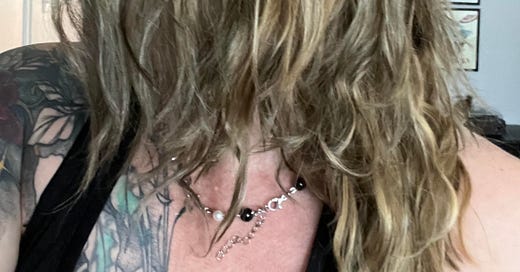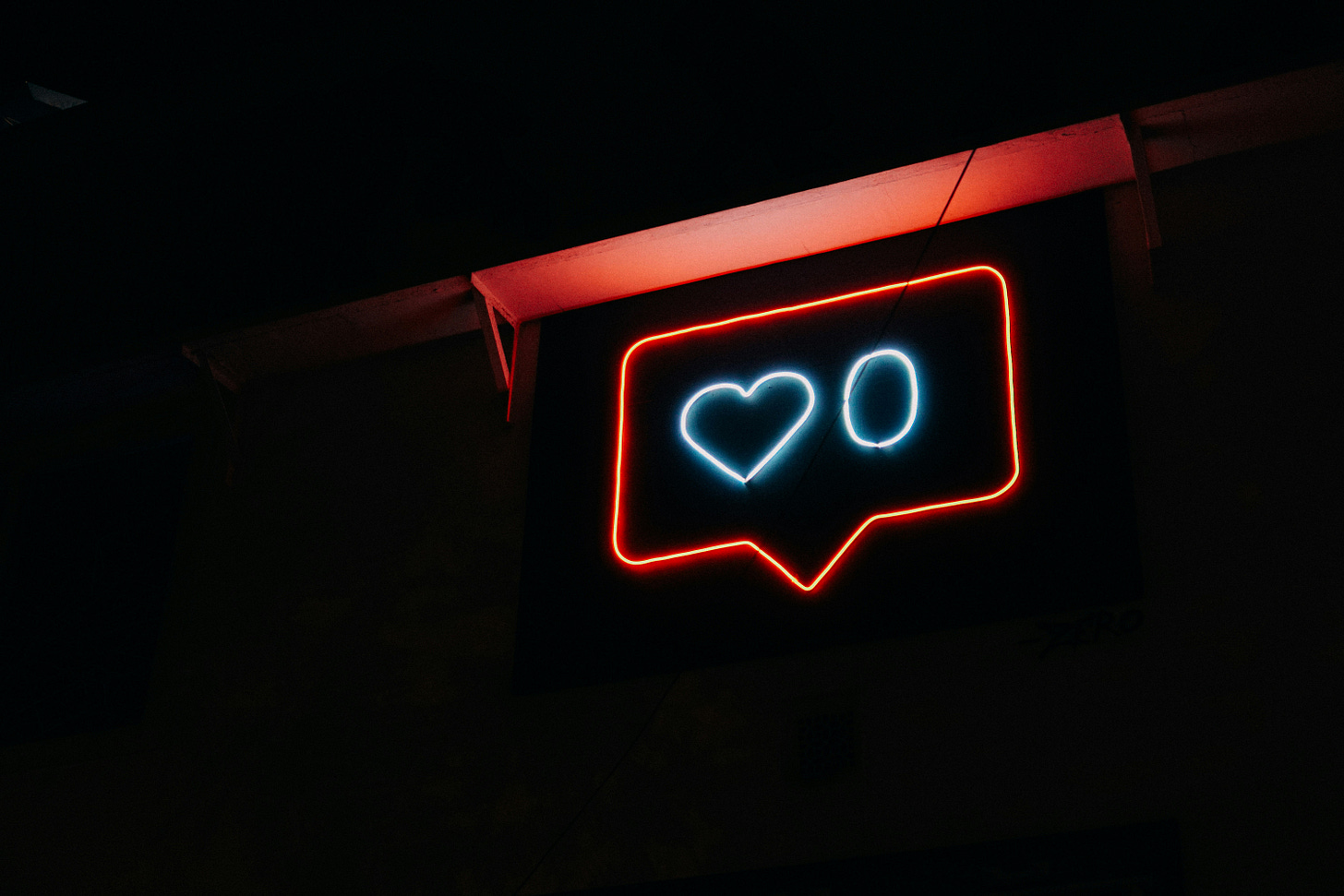Bad Haircuts & Making Friends
The neurodivergent conundrum of seeking connection online
The highlight of my week was grappling with what to write about on Substack and my terrible haircut. Isn’t it bad? I’m not sure what happened. Was the stylist’s eyes closed when she chopped into my hair?
When I figured out how bad this haircut was after washing and letting it air-dry, I took a picture and I sent to a group of my online writer ‘friends’. It's hard to call people you’ve met online and only talk to online friends, but to me, they’re all I got. Mostly. In the real world, I’ve got two other friends I speak with semi-regularly. Though, I couldn’t even define semi-regularly because I’m clueless about how often friends should or want to talk.
I’ve struggled with this friend-thing my whole life. I’ve been called too loud. My personality is too strong or too ‘full of life’ (yes, direct quote from an ex friendship). I’ve been called ‘a bit much’ (yes, another direct quote). And the problem is? I don’t know how to turn it off. At this point in my life, I don’t know that I care to turn it off.
In response to this friend problem of mine, I’ve taken to posting on social media and finding Discord servers tied to my special interest. The only problem is, social media is exhausting whether your neurodivergent or neurotypical.
I haven’t posted anything on TikTok in over a week. If you go to my IG page, you’ll find it’s gathering dust in the corners. I should probably go clean that up or post something new. I’ve struggled to figure out what to write on Substack this week. The constant need to generate content and post something to find any sliver of connection can be a bit demoralizing.
Many neurodivergent people end up online simply because they have no other choice. I know it may be difficult to understand why someone would feel forced to use social media. It isn’t like anyone is holding us hostage and making us do the tapptiy-tap on our phones and while this is true; it doesn’t negate the fact that neurodivergent people often feel like social media is a necessary evil in their lives.
The DSM-5, Diagnostic and Statistical Manual of Mental Disorders, it states the first criterion for autism is the “Persistent deficits in social communication and social interaction across multiple contexts”.
Now I’m sure you can imagine that if a person has ‘persistent deficits in social communication’ that it may have an impact on being able to make friends and maintain friendships. It’s this difficulty with friendships which drives a lot of autistic people to seek connection online.
However, autism isn’t the only type of neurodivergence either. There is also ADHD, dyslexia, and dysgraphia. This isn’t an exhaustive list, there are many more.
Since neurodivergence is defined as someone’s brain working differently than the ‘norm’, I would also venture to say there are mental illnesses which fall under the umbrella of neurodivergence. But there is a divide in the neurodivergent community about whether those with mental illnesses like OCD, PTSD or DID are ‘actually’ neurodivergent. One side argues that your brain must be different from birth The other, which I’m more inclined to argree with, argues there are things that happen in life (i.e. trauma) which reprogram your brain and make a person operate outside the ‘norm’.
I bring all this up because there’s a lot of overlap in many of these conditions and diagnoses. For example, someone who is ADHD and has trouble with impulsivity may talk a lot, talk over people or interrupt. When a person is trying to form friendships, the people on the receiving end probably don’t like to be talked over or interrupted. This can cause challenges in finding solid connections in person.
The same goes for things like OCD or PTSD, where people get stuck in loops of thought that often involve them being hypervigilant or consumed with worry. It’s difficult for most neurotypical people to grasp what that feels like. So when a person with OCD gets stuck in a compulsive loop and is obsessing about a particular thing, it can be a turnoff for others who don’t understand this experience.
For example, I can get obsessive about things needing to be ‘just right’ with my clothes. I can put something on and I like the way it looks, but something about the material or where it sits on my body is triggering. It can easily make me start obsessing and feels like my brain is stuck on a hamster wheel. I’ll go to work or a party and all my energy will be spent thinking about this clothing item and the way it fits. This can cause me to be absent-minded or snippy. The constant replay of this item ‘not fitting right’, ‘not fitting right’, ‘not fitting right”, is maddening. And the instrutive thought doesn’t go away until I close the loop, i.e. change my clothes.
Normally, when making friends, they like you to be present and not snippy, but that can be difficult when you’re waging a war in your mind for it to shut the fuck up.
The bottom line is being neurodivergent or struggling with mental illness makes relationships difficult. It’s why being online is a necessary evil for many of us. When you are house bound with depression, you can still find a spark of connection online. When your autistic and all you like to talk about is your special interest, you can find groups dedicated to that interest online. When your ADHD and interrupt people a lot, that’s no longer a problem with threaded conversations.
I theorize being online also sanitizes the personalities of neurodivergent people so we are more palatable to those more ‘normal’. With a screen between me and those I’m speaking with, they no longer see my mannerisms. My hand gestures, tapping and repetitive behaviors don’t get in the way. The screen is also a barrier which can slow down conversation so I’m not speaking over others.
For some, being online allows a person the ability to be whoever they want. Not making friends in real life? Then you can pretend to be exactly the opposite of what you are when your online.
There’s a terrible downside of filling a majority your connection needs online and that is that it’s awfully draining. Being online all the time can exacerbate symptoms of mental illness and neurodivergence. It is a double-edged sword. But when people shun you, make fun of you, or silently push you out of real life friendships, what choice do you have but to turn to social media?
Socially, like many other neurodivergent people, most of my need for connection is fulfilled online. It isn’t something I like, it’s just another byproduct of my difference. Being different and seeking connection is one of the biggest reasons why I write. Through my writing and reading others’ writing, I can find common ground. So when someone likes or comments on my posts, it helps me not feel alone.









This was such a lovely vulnerable piece 👏🏽